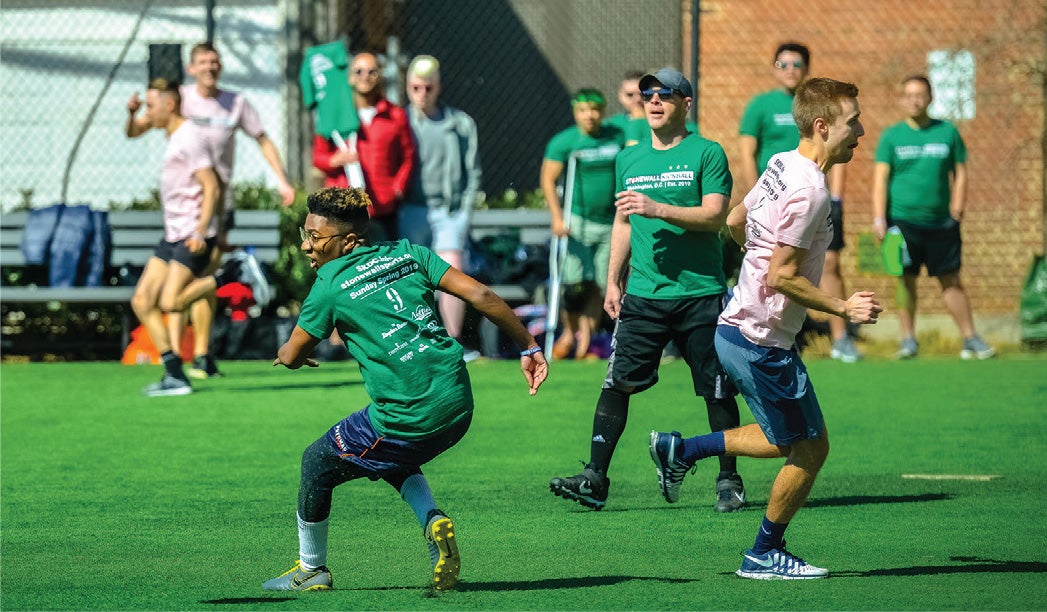 Walking from the Institute’s bright Washington headquarters one early summer day, I found myself trying to keep up with a colleague who was rolling a black amp up the sidewalk. Was he on his way to a rally? I asked. No. It was the end of the season for Stonewall Kickball, the LGBTQ team he coaches and captains as a way of making newcomers feel welcome and included in a city that can seem closed. The amp was to call out plays. “We’re a team,” he told me, “not only on but off the field.” Teammates meet regularly to catch up on each other’s lives, do volunteer work, and fundraise for the team’s charity. “It might sound corny,” he said, “but Stonewall is really my second family.”
Walking from the Institute’s bright Washington headquarters one early summer day, I found myself trying to keep up with a colleague who was rolling a black amp up the sidewalk. Was he on his way to a rally? I asked. No. It was the end of the season for Stonewall Kickball, the LGBTQ team he coaches and captains as a way of making newcomers feel welcome and included in a city that can seem closed. The amp was to call out plays. “We’re a team,” he told me, “not only on but off the field.” Teammates meet regularly to catch up on each other’s lives, do volunteer work, and fundraise for the team’s charity. “It might sound corny,” he said, “but Stonewall is really my second family.”
He reminded me of another young colleague who coaches an ultimate frisbee team, part of an effort to make Washingtonians feel at home and linked even if they, like him, are holding down a day job and getting a graduate degree at night—he aims to be a teacher and a role model for young Latinos. Or the young woman who coaches soccer teams for children ages 5 to 12 and told me: “I’m 24, I don’t have kids, and neither do any of the volunteers. We don’t usually interact with kids outside our family. Every Saturday I have intense conversations about best friends, earthworms, and family pets. What I love most about this league is that it’s free. It allows for families whose financial resources differ to have their kids all be part of the same team.”
All these colleagues came to mind not only because of the article we feature this issue in our Journal of Ideas about mixedgender sports finally taking hold as an idea both on community fields and at the Olympics (see page 54)—but because almost every article focuses specifically on building communities in places that don’t have them (see pages 44 and 48) or need strenghtening (see pages 37 and 40). It’s a core part of what the Institute does in all its programs. And building community is a core part of what our colleagues do off the clock, too, wherever they call home.